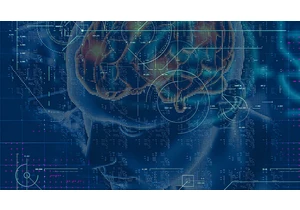Around the time that MIT economist Daron Acemoglu became one of AI’s most prominent hype-busters, he also won a Nobel Prize.
While those two things are not directly related, Acemoglu says there’s a common thread. Acemoglu and his co-laureates, Simon Johnson and James Robinson, were recognized for their research on how societies with extractive political systems are less prosperous over time than those that emphasize individual rights. Likewise, Acemoglu believes there will be limited financial return from AI that aims to replace human judgment.
“We need investment for alternative approaches to AI, and alternative technologies, those that I would say are more centered on making workers more productive, and providing better information to workers,” Acemoglu says.
In a research paper published in May, Acemoglu projected that generative AI will only automate about 4.6% of tasks over the next decade, with an average cost savings of 14.4%. Multiply those factors, and the total productivity gain is a paltry 0.66%, which Acemoglu says is a generous estimate, based on the idea that AI will become better at performing some hard-to-learn tasks. He projects that the true productivity gains from AI will be a mere 0.53%, and that GDP will only grow by about 1% over the next decade.
Although he’s been reiterating these points in numerous interviews, articles, and research reports, Acemoglu says he’s not an AI pessimist. He’s just dismayed by the amount of hype around AI—including in the media—that can lead to wasteful spending by businesses.
“They’re telling you, ‘Oh look at ChatGPT, it passed the bar exam, there’s going to be no need for lawyers,’ and all that crap, which has nothing to do with reality,” he says. “And that creates this environment, which I think is very, very bad, where CEOs and business leaders are feeling, ‘Oh, if I’m not investing in AI, I’m falling behind my competitors, I should just go ahead to find something to do with AI.'”
Acemoglu says he’s now putting his money where his mouth is, working on the development of more targeted AI technologies that don’t rely on expensive large language models from big tech companies. One example, he says, will provide better information to lawyers, so they can encourage better settlements and make the legal system more efficient.
“We’re hoping to design things that give information to individual actors by empowering individuals,” he says, “rather than taking tasks away from them, or coming from the top and telling them what to do.”
This story is part of AI 20, our monthlong series of profiles spotlighting the most interesting technologists, entrepreneurs, corporate leaders, and creative thinkers shaping the world of artificial intelligence.
Войдите, чтобы добавить комментарий
Другие сообщения в этой группе
On this week’s Most Innovative Companies podcast, Cloudflare COO Michelle Zatlyn talks with Fast Company staff writer David Salazar about hitting $1B in revenue and going global, as well as

If you’ve built an audience around documenting your 9-to-5 online, what happens after you hand in your notice?
That’s the conundrum facing Connor Hubbard, aka “hubs.life,” a creator who

OpenAI should continue to be

WhatsApp should prepare to leave the Russian market, a lawmaker who regulates the IT sector

This is an edition of Plugged In, a weekly newsletter by Fast Company global technology editor Harry McCracken. You can sign up to receive it each Friday and read all issues


